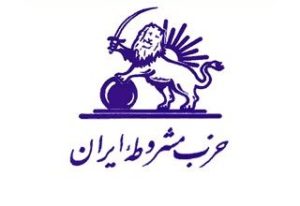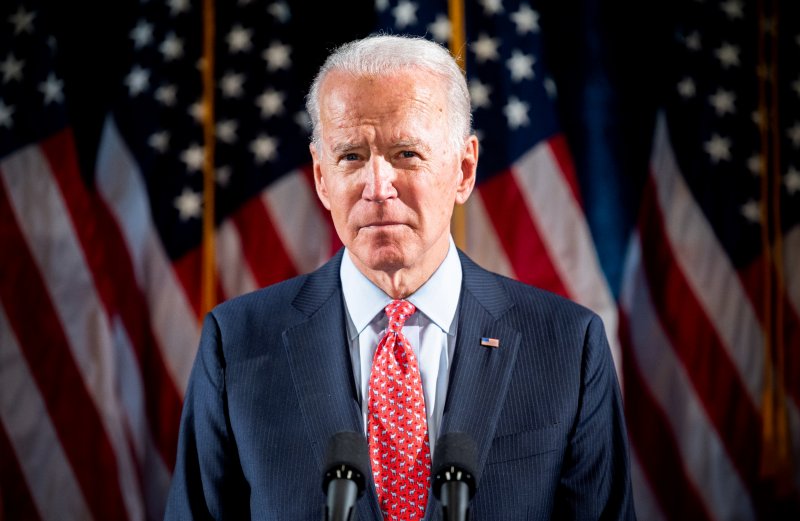
Our Letter to Democratic Presidential Nominee Joe Biden
Dear Vice President Biden,
As members of the Iranian diaspora including Iranian Americans, we write to you to advocate for the rights of the Iranian citizens in Iran, as well as the Iranian American community’s interests here in the United States. Iran is a complex nation with thousands of years of history that have shaped the country it is today.
Of key concern to us are the abysmal human rights record of the current regime, and the threat it poses to global peace and security, stability of the Middle East, and the national interests of the United States, the great country that many of us call home.
President Obama’s Administration sought to slow the Iranian regime’s march toward nuclear weapons through the Joint Comprehensive Plan of Action (JCPOA) in the hope that the deal would change the behavior of the regime. These expectations never materialized. The economic windfall from the deal was spent on regional expansionism and support of terrorist groups instead of the well-being of the Iranian people. President Trump’s exit from the JCPOA has indeed curtailed the regime’s ability to pursue its nefarious extraterritorial adventurism. However, much like President Obama, President Trump has stopped short of addressing the most clamoring ingredient of a sound Iran policy: the suffering of the Iranian people at the hands of the Islamic Republic.
Each time the Iranian people have voiced their aspirations for a just and free society peacefully, they have been met with brute force, torture, long prison sentences and death. In December 2017, the regime crushed peaceful protests which resulted in numerous deaths and long sentences for peaceful demonstrators. The Iranian women’s movement against compulsory hijab is suppressed by cruel and atrocious punishments including the sentencing of several activists to imprisonment for decades for innocuous acts of civil disobedience. Labor protests for basic rights and unpaid wages are almost daily occurrences in Iran despite harsh punishments awaiting the protest organizers.
In November 2019, masses of Iranians in multiple cities and townships gathered to protest the regime’s corruption, economic mismanagement, and human rights violations. Unlike the 2009 demonstrations which were ostensibly contesting the results of the presidential elections, the 2019 protests questioned the legitimacy of the Islamic Republic regime in its entirety. In the course of those protests, more than 1,500 people were killed on the streets and thousands more were arrested. The whereabouts of many are still unknown. Recently, three young men detained in the aftermath of the protests were sentenced to execution in a “kangaroo trial” that deprived them of proper legal representation and due process.
The Islamic Republic’s record is particularly abhorrent when it comes to women and children. This regime has effectively institutionalized the exploitation of these two groups. Romina Ashrafi’s tragic story may resonate with you as a father. This May, Romina, a 14-year-old girl, was murdered by her father with a farming sickle as a form of “honor killing” under the impunity afforded to him by the regime’s Sharia law. Iranian media reported that Romina’s father, prior to murdering her, consulted with an attorney to ensure his legal right to protect his “honor” by killing her. There is much about Romina’s life and death that are unacceptable: from the Islamic Republic government not tracking how many of these so called “honor killings” occur to allowing Sharia law to dictate her father’s nominal sentence for brutally slaughtering his own daughter. In Iran, the legal age of marriage is 13 and Romina was considered his chattel to dispose of however he decided. Domestic and international outcries to outlaw child marriage continue to fall on deaf ears.
Reflecting upon these and many other instances of gross human rights violations, as well as concerns for the safety and well-being of our community in the United States, we felt the urgent need to reach out to you. Many Iranian Americans immigrated to the US in the past 20 years and were born into lives under the Islamic Republic. We can provide valuable perspective on how the regime and its officials operate, the aspirations of the Iranian people, and how to deal with the regime to ensure the much-deserved liberty and well-being of the Iranian people who suffer continually under the regime’s rampant corruption and incompetence. With great optimism, we offer a set of policy recommendations for your consideration.
The National and Homeland Security Threat that the Islamic Republic poses to the US
According to the US Treasury Department, the Islamic Republic is the primary source of funding for Hezbollah and provides this terrorist organization with an estimated $700 million annually, despite millions of Iranians living in abject poverty and repeatedly raising their voice against plundering Iran’s national wealth to fund terrorism. The criminal enterprise of the Islamic Revolutionary Guard Corps (IRGC) and Hezbollah goes beyond regional terrorism and igniting civil wars with consequent refugee crises. The regime’s proxies pursue their malign objectives globally and in the heart of the United States. Hezbollah is deeply involved in the drug trade. In 2008, a campaign launched by the US Drug Enforcement Administration (DEA) determined that Hezbollah was involved in shipping cocaine from Latin America to West Africa, as well as through Venezuela and Mexico into the United States. In 2011, DEA special agents foiled an IRGC and Hezbollah sponsored plot to assassinate the Saudi Ambassador to the US in Washington, DC.
Beginning in 2013, the Mabna Institute, a private, Iran-based company affiliated with IRGC, launched a coordinated campaign of cyber intrusions into computer systems belonging to 144 US-based universities, 176 universities across 21 foreign countries, 47 domestic and foreign private sector companies, the United States Department of Labor, the Federal Energy Regulatory Commission, the State of Hawaii, the State of Indiana, the United Nations, and the United Nations Children’s Fund. In 2018, the US Department of Justice prosecuted 9 Iranians implicated in what they described as the defendants acting “at the behest of the Iranian government and, specifically, the Iranian Revolutionary Guard Corps.”
In July 2017, a militant regime operative named Mohsen Dehnavi was denied entry into the US – despite a valid visa – under the auspices of conducting cancer research at a Boston Hospital. In Iran, Dehnavi was an active member and leader of the Basij militia (an ideological paramilitary arm of IRGC) at Tehran’s Sharif University of Technology. The role of the Basij militia is to intimidate and threaten students through violent repression of pro-democracy activism as well as the suppression of political unrest in the larger society. As an active member of the “Proud Iran” (Iran-e Sarboland) party, Dehvani ran for Iran’s Islamic Parliament and was “elected” in February 2020. As Iranian Americans, we were dismayed to see some key figures within the Democratic Party voice their support for Dehnavi’s entry into the United States. As the US allocates resources to protect its national and homeland security interests against the Islamic Republic, it should be ensuring that regime officials are not exploiting its immigration system. Doing so also ensures the security of Iranian American dissidents, given the regime’s long record of assassinating its political opponents overseas
The current Administration’s travel ban has managed to keep many regime operatives outside the United States, but at a great cost to the Iranian American community. As many have proposed since the enactment of the ban, there are more effective and targeted instruments to guarantee the safety of Americans from the predations of the Islamic Republic, while ensuring that ordinary Iranians and Iranian Americans can comfortably travel between the two countries. Access to Iran is vital for keeping open lines of communication with civil and human rights activists inside Iran, especially when Internet access is restricted by the regime as a tool to suppress the free flow of information. We propose a total and absolute ban on travel to the US by regime officials and their affiliates until any hostility towards the United State and the Iranian American community ceases, and human rights conditions in Iran are perceptibly improved
It is our recommendation that the US Department of Treasury, US Department of Defense, and the National Security Agency, use their influence and capabilities in cyberspace to combat the Islamic Republic’s financial and cyber terrorism. By cutting off their financial support for proxy terrorist and criminal organizations and countering their cyber-attacks, the US will cripple the Republic’s power and influence. It is vital that the next Administration take a strong, decisive, and adaptive approach to this threat. It goes without saying that modern warfare is rapidly evolving, and to ensure that our military is not drawn unnecessarily into another foreign battlefield, it is critical to incapacitate the Islamic Republic’s nefarious cyber capabilities and operations before it is too late..
The Islamic Republic’s Nuclear Weapons Capability Poses an Imminent Threat to the People of Iran and the World
Despite noble intentions by the US administration, the JCPOA suffered from several issues from the outset. The US entered JCPOA in good faith to provide the Islamic Republic regime a chance to improve its relationship with the US and the West. However, the regime dismissed any calls for rapprochement and the Supreme Leader of the regime, Khamenei, declared America “the eternal enemy”. International inspectors were not permitted access to certain facilities, ballistic missiles marked with genocidal antisemitic slogans were test fired, American citizens and journalists were taken hostage, joint military operations with Russia began in Syria, and money and weapons were shipped to Houthi rebels in Yemen and the Taliban in Afghanistan. The outcome was the initiation and sustenance of chronic, non-conventional wars in Syria, Iraq, and Yemen, leading to the death and starvation of millions of children and innocent civilians, and the displacement of millions more, causing several socio-economic crises, particularly in Europe.
Many in the Iranian American community disagreed with the JCPOA from the start and in its entirety. It is our hope that their voices and perspective will be considered if Iran should come to the negotiation table again. We believe that any nuclear agreement with the regime should be a part of a broader deal that addresses the regime’s abhorrent record on human rights and also curtails its quest for regional dominance at the expense of ordinary Iranians as well as its involvement in global terrorism and drug trafficking.
Many of us grew up in Iran during nearly a decade of conflict with Iraq and witnessed firsthand the devastation that war brought upon the Iranian people. We do not want to see another dictatorship in the Middle East cause another regional war. We hope that your administration will implement tough diplomacy to ensure nuclear and other unconventional weapons are kept out of the hands of this totalitarian regime
Human Rights Abuses by the Islamic Republic
The world has long viewed the United States as an advocate and protector of the oppressed and the marginalized. It has been the policy of United States government to protect and promote human rights in the face of violators anywhere and anytime. We strongly urge you to hold the Islamic Republic accountable. Your administration can and must send a clear message that violations of basic human rights will not be tolerated.
The ruling regime in Iran is particularly hostile and abusive to women, ethnic and religious minorities, and the LGBTQ community. Ethnic minorities, falsely accused of being separatists, are frequently arrested and executed following kangaroo trials. Religious minorities and non-believers are persecuted with fraudulent charges such as espionage and conspiring against Shia Islam; in many cases, their cemeteries are desecrated. Same sex couples face prison or execution. Women are harassed and physically assaulted by the Sharia Police for not conforming to hijab and other oppressive dress codes.
As the presumptive Democratic nominee, we would like to extend an invitation to a dialogue on US-Iran policy and how we, as the Iranian diaspora, hope to see US-Iran relations change under your presidency. We have great aspirations for Iran and its people, and enthusiastically welcome the opportunity to engage in a robust discussion on how to accomplish this.
We thank you for your time and attention and have faith that our recommendations would find your consideration.
Sincerely,
The Constitutionalist Party of Iran (Liberal Democrat)
Iranian Americans for Liberty
Bobby Afrooz, DDS
Dental surgeon
Payam Alipour, PhD
Visiting Professor of Economics, Pennsylvania State University
Shayan Arya
Central Council Committee Member, Constitutionalist Party of Iran (Liberal Democrat)
Parviz Bazooband, MD
Physician
Reza Behrouz, DO
Physician and Professor of Neurology, University of Texas & Member, Constitutionalist Party of Iran (Liberal Democrat)
Khosrow Beitollahi
Former Imperial Air Force Pilot & Central Council Committee Advisor, Constitutionalist Party of Iran (Liberal Democrat)
Ally Bolour, Esq.
Attorney at Law
Shima Bozorgi
Iran Expert, Washington, D.C.
Foruq Canaani
Women’s rights activist
Cina Dabestani, MS
Senior Transportation Engineer & Member, Constitutionalist Party of Iran (Liberal Democrat)
Navid Daryazad, Esq.
Attorney at Law
Jessica Emami, PhD
Sociologist
Shervan Fashandi, PhD
Expert in banking and finance, Board member, Iranian Americans for Liberty; Member, Constitutionalist Party of Iran (Liberal Democrat)
Amir Fassihi, MD
Physician, author, and activist
Ramin Ghashghaei, Esq.
Attorney at Law
Babak Ghotbi
Central Council Committee member, Constitutionalist Party of Iran (Liberal Democrat)
Daniel Jafari, MD, MPH
Physician and Assistant Professor of Medicine; Board member, Iranian Americans for Liberty
Mitra Jashni
Visual Artist and human rights activist & Iranian Americans for Liberty
M.J. Javani
Novelist
Shay Khatiri
Ambassador Andreas Baum Fellow, Strategic Studies Department, Johns Hopkins University, SAIS
Karmel Melamed
Journalist
Zohreh Mizrahi, Esq.
Attorney at Law
Navid Mohebbi
Democracy Activist
Afshin Nariman
Journalist and photographer
Pooya Nasseri, MBA, MS
Financial adviser
Ali Nayeri, PhD
Physicist
Foad Pashaei
Central Council Committee advisor, Constitutionalist Party of Iran (Liberal Democrat)
Negin Ragh
Journalist
Ali Saadat Meli
Amir Sadri, MS
Central Council Committee member, Constitutionalist Party of Iran (Liberal Democrat)
Hamed Salimi
Aliasghar Sepehri, PhD
Chemist
Samuel Shahan, RN
Registered nurse and human rights advocate
Ehsan Shah Hosseini, PhD
Photonics Expert
Cyrus Shahrezaei
Human rights advocate and entrepreneur
Amin Sophiamehr, PhD
Researcher at Indiana University
Farahmand M. Kalayeh
President & CEO, Augknos, LLC & Iran Democracy Advocate
Haideh Tavackoli
Secretary General, Constitutionalist Party of Iran (Liberal Democrat)
Nader Zahedi, PhD
Deputy Secretary General, Constitutionalist Party of Iran (Liberal Democrat)
Khashayar “Shay” Khatiri
Ambassador Andreas Baum Fellow at the Strategic Studies Department, Johns Hopkins University, SAIS & Contributor to The Bulwark



